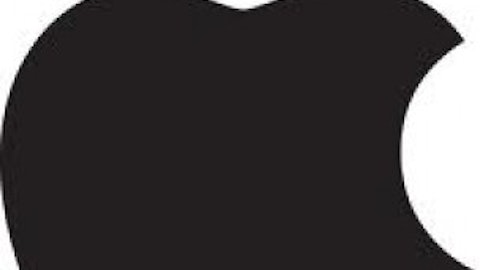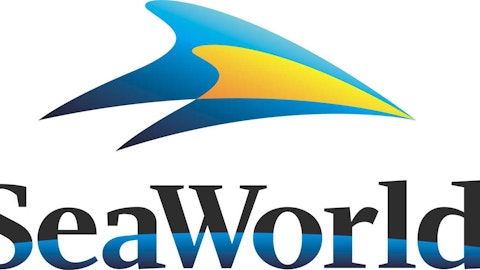Without a doubt, Berkshire Hathaway Inc. (NYSE:BRK.B) stands alone as the most successful financial holding company in history. Thanks largely to the leadership of Warren Buffett, Berkshire’s per-share book value grew by an astounding average of 19.7% annually from 1965 through 2012 — good for an unbelievable total gain of nearly 587,000%.
But while I wholeheartedly believe Berkshire will continue to outperform the wider market going forward, even Buffett has admitted Berkshire’s enormous capital base will make it nearly impossible to duplicate his past rate of return. What’s more, though Berkshire is comprised of a wide range of profitable underlying businesses, much of its success can be attributed to Buffett’s knack for investing in the stocks of other great long-term oriented companies.
With that in mind — and in no particular order — here are five stocks I believe offer better future returns than Berkshire Hathaway Inc. (NYSE:BRK.B).
1. Apple Inc. (NASDAQ:AAPL)
Despite Apple’s relentless chorus of skeptics, it’s hard to ignore the fact this tech titan currently trades for a mouth-watering 9.3 times trailing earnings and just 8.3 times next year’s estimates. When you subtract the nearly $145 billion (yes, with a “b”) in cash on Apple’s balance sheet, which is nearly 38% of Apple’s entire market cap, its trailing price to earnings ratio drops to a ridiculous 5.8.

2. The Walt Disney Company (NYSE:DIS)
While Apple Inc. (NASDAQ:AAPL) might be the king of mobile computing, Disney has the world of entertainment covered through both its theme park operations and ownership of the Disney Channel, ABC Family, SOAPnet, and significant stakes in ESPN and A&E Networks. Of course, by way of acquisition, Disney also lays claim to animation whiz Pixar, comics legend Marvel Entertainment, and Star Wars and Indiana Jones creator Lucasfilm.
Disney may be a bit pricier than both Berkshire and Apple Inc. (NASDAQ:AAPL) at 20 times trailing earnings but, thanks to the enormity and diversity of its creative property, the House of Mouse sports a moat no drawbridge can cross.
3. Markel Corporation (NYSE:MKL)
While I’ve made no secret of my fondness for Markel, I’m certainly not the only investor to compare the strategy of this much smaller financial holding company and its CIO, Tom Gayner, to that of Berkshire Hathaway Inc. (NYSE:BRK.B) and Warren Buffett. So what does Markel have offer that Berkshire doesn’t?
Size, for one — or lack thereof, anyway. With its market capitalization under $5 billion, Markel Corporation (NYSE:MKL) is more than 50 times smaller than Berkshire. Assuming Gayner can even partially replicate Buffett’s success — and noting he has already helped Markel’s book value per share increase at a 16% clip over the past two decades — it’s safe to say Markel has plenty of upside left.
4. Whole Foods Market, Inc. (NASDAQ:WFM)
As one of my newest personal holdings, I was happy when investors soured recently on shares of Whole Foods after the organic grocer posted “disappointing” quarterly results back in February.
Even so, I wholeheartedly agreed with fellow Fool Alyce Lomax when she asserted nothing had happened to significantly alter the company’s incredible long-term growth story. To the contrary, this morally sound, cash-rich business remains solidly profitable as management steadily grows its number of locations, which they hope to eventually almost triple to 1,000 in the U.S. alone. And, like Apple Inc. (NASDAQ:AAPL), patient Whole Foods Market, Inc. (NASDAQ:WFM)shareholders can happily collect a 1% dividend while they wait for the stock to rebound.
5. Under Armour Inc (NYSE:UA)
Lastly, I’m offering Under Armour as my final “better than Berkshire” stock. And yes, I’m aware comparing this tiny $6 billion performance apparel company to the diversified behemoth that is Berkshire may seem odd.




